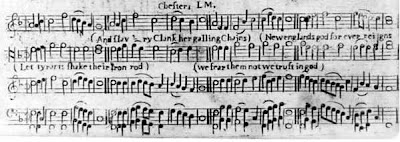now 1787 is Ended,
it happy is if we are mended,
God grant if not we may be.
Martha Ballard's diary, December 31, 1787
it happy is if we are mended,
God grant if not we may be.
Martha Ballard's diary, December 31, 1787
Before the 19th century, Christmas was a minor religious holiday. Many Christian sects didn't celebrate it at all, partly because the actual day wasn't specified in the Bible, and also, as the Puritans put it, the season promoted drinking and debauchery. (The Puritans, in fact, outlawed Christmas.) Most stores and markets were open on the 25th. At first, only Catholics held services. Protestant churches joined in after many of their congregants began attending the Catholic masses to hear the special music of the day.
How was the season observed? The wealthy threw elaborate dinner parties. Poorer classes, knowing the rich were congregating for the Yule, went door-to-door, asking for money or food and drink in return for a wassail (that is, a toast to the health of the host and his family, often sung). Servants and workers were given coins by their employers and patrons. Some people observed customs brought over from Europe--mistletoe, the making of mince pies, a Yule log, perhaps modest decoration of the mantel with things like leaves, pine cones, or a few apples, to be eaten during the season. No one would have wasted food, let alone something like a pineapple, which very few could afford, by nailing it over the door. A poor man would have stolen the fruit before the night was out, to feed his family. In the taverns, a bowl of special punch might be prepared. And now that the harvest was done, if the roads were frozen enough for mudless travel, visiting neighbors and relatives was common. Time to hear stories (ghost tales were popular in the long nights), to sing and catch up on news and gossip.
Most Americans now consider Thanksgiving through December 25th as the Christmas season, but that's a recent development, defined by 20th century merchants. Traditionally, Yuletide is December 25th through January 6th (Epiphany--the day the Magi visited Christ). In early America, since many people were farmers whose calendars were determined by the solstices and equinoxes, Yuletide began for some on December 21.
January 6th--also called "Old Christmas"--was the 12th day of the Yuletide (you know, 12 drummers drumming?). Both its eve and the night of Epiphany have been called Twelfth Night. In colonial America, Twelfth Night was a traditional time for weddings, and for a final party before the Yule came to a close.
As for music, many lyrics of our traditional carols, such as Joy To The World, Hark, the Herald Angels Sing, and While Shepherds Watched Their Flocks by Night, were sung to earlier tunes. The American composer Williams Billings wrote several fun-to-sing Christmas songs, including A Virgin Unspotted and Methinks I See A Heavenly Host. And of course, the wassails mentioned above were very popular, most using some variation of the words
God bless the Master of this House
The Mistress also
And all the little children
That 'round the table go.
The Mistress also
And all the little children
That 'round the table go.
One of Historical Harmonies favorite Yuletide songs is the shape-note hymn Milford, which was published in 1802 and most often attributed to James Stephenson. In the video, Colonial Reveler tenor Jason Gagliardi performs all 4 parts. We hope you enjoy it.
Happy Yuletide to all!
Your humble servants,
HH























